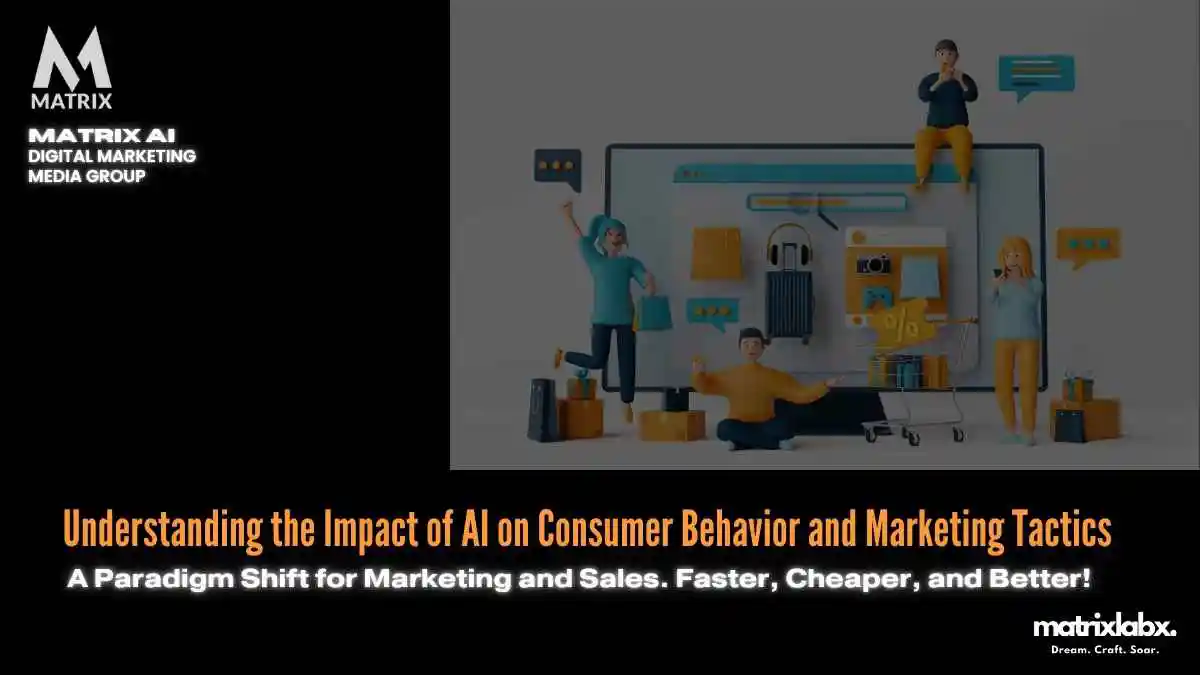Understanding the Impact of AI on Consumer Behavior and Marketing Tactics
Learn Why Understanding the Impact of AI on Consumer Behavior and Marketing Tactics.
Introduction
Here are four statistics from well-known research firms regarding how AI reshapes consumer behavior and redefines marketing tactics in the small to midsize business (SMB) market:
- AI for Personalization Leads to Higher Conversion Rates: According to research by Evergage (now part of Salesforce) in 2021, marketers report an average 63% improvement in conversion rates when using AI-driven personalization compared to generic messaging. This indicates that SMBs leveraging AI to tailor their marketing content and offers are significantly more successful in turning prospects into customers.
- AI-Powered Marketing Automation Saves Time: A 2024 report by ChatROI suggests that businesses using AI for marketing automation, including content generation for blogs and social media, experience an average savings of 20 hours per week. For SMBs with limited staff, this efficiency gain allows them to focus on strategic initiatives rather than repetitive tasks.
- Increased Sales with AI in Marketing: The Digital Marketing Institute reported that companies using AI in their marketing strategies have seen a 20% increase in sales. This demonstrates the direct positive impact of AI adoption on SMB revenue generation by enabling more effective customer targeting, engagement, and conversion.
- SMBs Expecting to Use More AI: According to the 2024 Small Business Index Report by Thryv, 43% of small business owners expect to use AI in 2025, compared to 31% in the previous year. This significant increase in anticipated adoption highlights a growing recognition among SMBs of the potential benefits of AI in various aspects of their operations, including marketing and customer engagement.
These statistics collectively illustrate the growing importance of AI for SMBs in understanding and influencing consumer behavior and optimizing their marketing efforts for better results and efficiency.
A decade ago, searching for a product involved either a trip to the store or navigating through often clunky and unintuitive online platforms.
Today, consumers can voice a query into their smartphone and receive personalized product recommendations in seconds.
This shift is underscored by a staggering statistic from Google: 27% of the global online population uses voice search on mobile (Google).
Such transformative advancements in search technology exemplify the broader impacts of artificial intelligence (AI) on consumer behavior and marketing strategies.
In the evolving digital commerce landscape, data-driven marketing strategies have become paramount. These strategies harness vast arrays of consumer data, utilizing advanced analytics to tailor marketing efforts to individual preferences and behaviors.
AI analytics is at the heart of this revolution, which leverages machine learning and predictive algorithms to understand and anticipate consumer behavior. AI tools analyze patterns in large datasets to optimize marketing tactics, enhancing customer engagement and increasing conversion rates.

